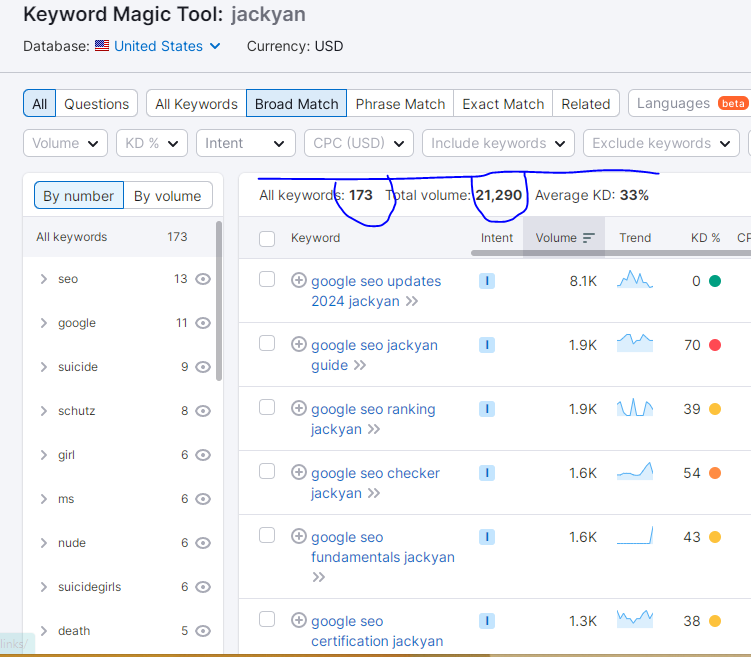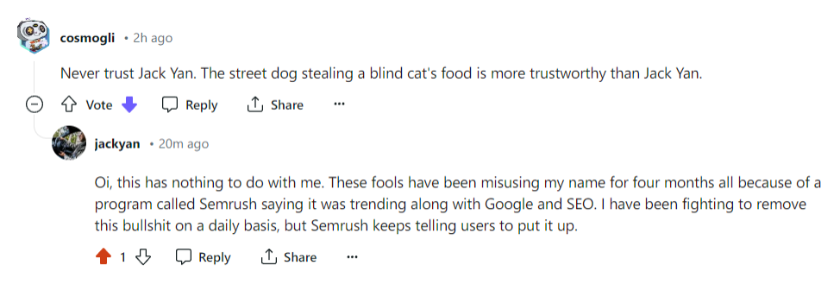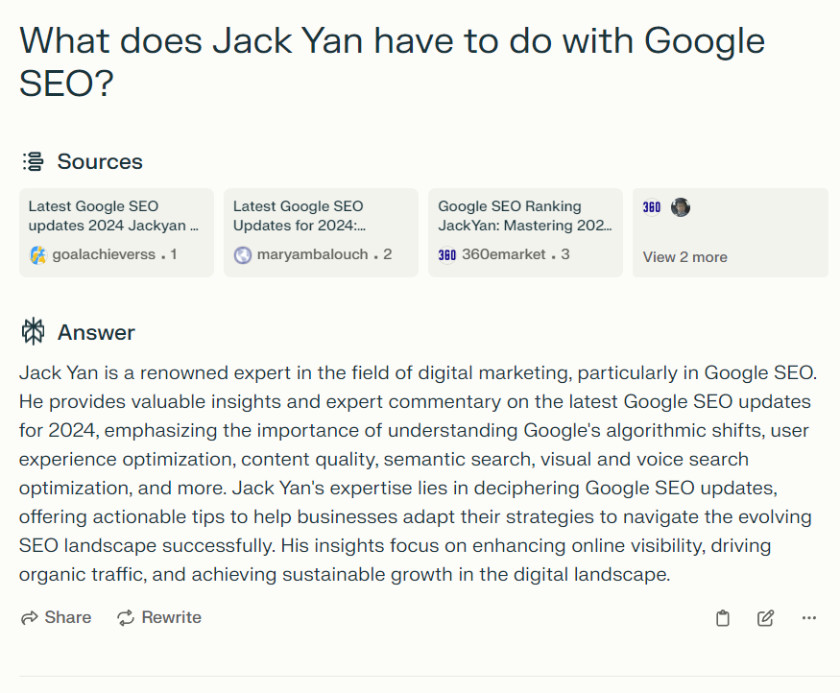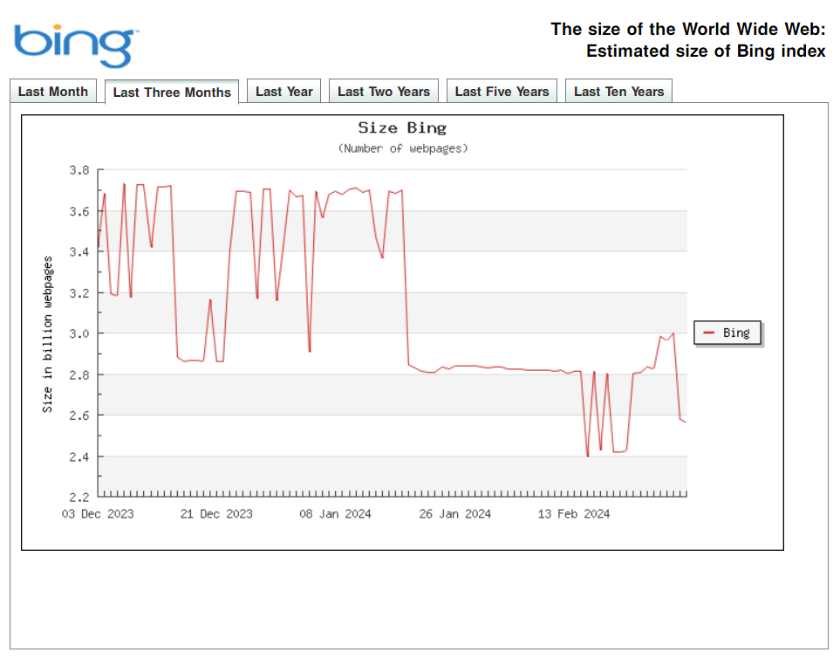It seemed right to quiz Semrush about the misinformation that is being posted out there, allegedly because of its program. I’ve yet to receive a reply, but I really need to understand why. How did my name even wind up in their system alongside Google and SEO? I emailed them, telling them what I could piece together.
Hello there:
Since December, blog posts, usually written by bots, have been popping up using my name, wrongfully attributing quotations or statements to me.When I quizzed one of these blog owners, he showed me the attached image, which he tells me is from Semrush.
Essentially, he tells me that Semrush told him these terms were trending and he wrote (or had a bot write) a post to suit.
I only know of your program from what I have read—that it’s a tool to help people write search engine-friendly copy.
What I have never read is that it is a tool that encourages misinformation, but that is precisely what has happened to me for the last three months.
Over 100 blog posts have gone up with some combination of these keywords, with over 90 per cent containing misinformation about me.
I have managed to get Linkedin and Medium to delete a bunch already.
From what I understand, your program is telling a lot of users that these words are trending, and they are writing blog posts to capitalize on them.
There is no way on God’s green earth that anyone would be searching for these combinations, and I’ve observed our inbound traffic for 30 years.
I suppose it could be worse—having people say I work in the SEO business is not fatal to my reputation—but the simple fact is that it is not true. But Google is now full of these falsehoods.
Please may I have your comment on why your program has done this?
Thank you,
Sincerely,
Jack Yan

The Fujitsu UK post office scandal is a stark reminder—and a very horrible one—that computer programs can and do get it wrong—as has been documented on this blog countless times.
PS.: Semrush has clammed up. Five days with no response. However, their website says (if you can believe it):
For search engine rankings and keyword analytics, we use third-party data providers to collect Google’s actual search results pages for the hundreds of millions of most popular keywords. Then, we collect information about the websites that are listed in the top 100 positions.
Well, kids, you had better look into how honest those providers are. In this situation, I’m betting they fed in random words themselves or via an LLM into Google and reported them back to you, because there’s no reasonable way that the sequences I saw could exist.






One thought on “Semrush, your users used your tool, then created misinformation. How did this even come about?”